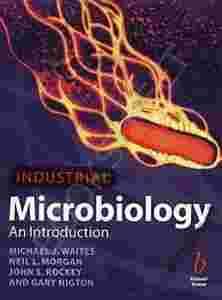|
Of major economic, environmental and social
importance, industrial microbiology involves the
utilization of microorganisms in the production of a
wide range of products, including enzymes, foods,
beverages, chemical feedstocks, fuels and
pharmaceuticals, and clean technologies employed for
waste treatment and pollution control. Aimed at
undergraduates studying the applied aspects of biology,
particularly those on biotechnology and microbiology
courses and students of food science and biochemical
engineering, this text provides a wide–ranging
introduction to the field of industrial microbiology.
The content is divided into three sections: key aspects
of microbial physiology, exploring the versatility of
microorganisms, their diverse metabolic activities and
products industrial microorganisms and the technology
required for large–scale cultivation and isolation of
fermentation products investigation of a wide range of
established and novel industrial fermentation processes
and products Written by experienced lecturers with
industrial backgrounds, Industrial Microbiology provides
the reader with groundwork in both the fundamental
principles of microbial biology and the various
traditional and novel applications of microorganisms to
industrial processes, many of which have been made
possible or enhanced by recent developments in genetic
engineering technology. A wide–ranging introduction to
the field of industrial microbiology Based on years of
teaching experience by experienced lecturers with
industrial backgrounds Explains the underlying
microbiology as well as the industrial application.
Content is divided into three sections: 1. key aspects
of microbial physiology, exploring the versatility of
microorganisms, their diverse metabolic activities and
products 2. industrial microorganisms and the technology
required for large–scale cultivation and isolation of
fermentation products 3. investigation of a wide range
of established and novel industrial fermentation
processes and products
|
|

